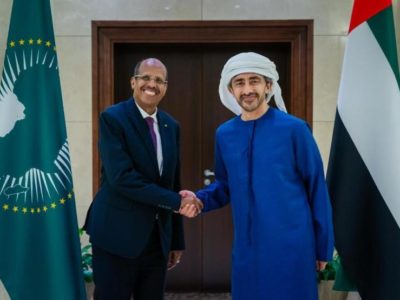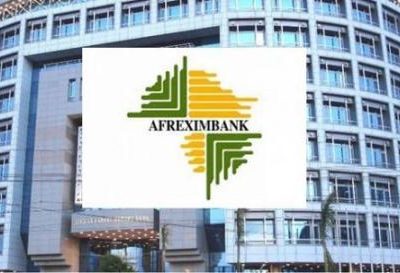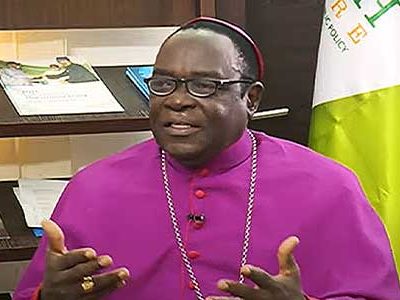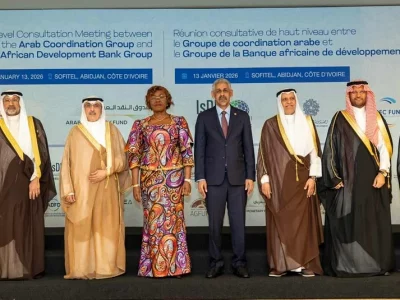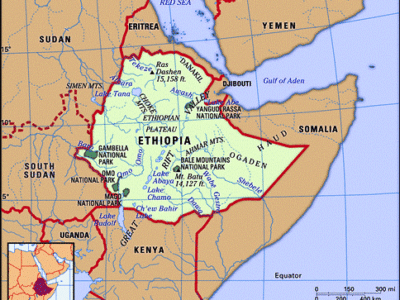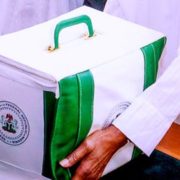
Matters eRising with OLUSEGUN ORUAME
First, Ekiti state, then Kaduna, Plateau, Imo and then other states. More than 10 states have either crashed Right of Way (RoW) charges to N145.00 per linear meter of fibre or completely eliminated the charges to ZERO!
For those conversant with the Nigerian telecom industry, the Right of Way challenge is an anecdote for more than a decade of contentions among stakeholders (operators, federal, state and local governments) over complex policies across states and non-uniformity in RoW charges impacting greatly and negatively on national connectivity rollout.
Let’s go a bit elementary. Like the delivery of electricity and portable water to homes or even rail transport, telecommunications are also a public good. But unlike electricity and water supply, delivery of telecommunication as last mile services to consumers through heavy duty infrastructures that sit on private or public property, is now wholly driven by private sector players.

To run those infrastructures across mass of lands or other such property, telecom operators need a permit or right of way (RoW), which is critical to the delivery of these key services (voice and data among several others) at the last mile.
While water corporations and electricity companies or even rail authorities do not have to struggle with RoW issues, privately owned telecommunication companies have had to contend with this challenge and other demons including multiple tax and inadequate access to foreign currency (FX) among others that have connived to ensure that internet access and the entire benefits of connectivity is denied to majority of Nigerians.
“The National Tax Policy … further provides that there is multiple taxation where ”the tax, fee or rate is levied on the same person in respect of the same liability by more than one State or Local Government Council.’ In 2015 and pursuant to the provisions of [“The Taxes and Levies (Approved List for Collection) Act 1998 Act No. 21, Cap T2 Laws of Federation 2004], the Minister of Finance issued the Schedule to the Taxes and Levies…. Ironically, even though the expectation was that this action would simplify the taxes and levies, it further compounded the issues by increasing the list of taxes from 39 items to 55” – Quoting the law as it impacts telecoms, legal practitioner, Rotimi Akapo.
As one expert definition holds: “Right of Way is an easement granted by a property owner that gives others the right to travel over the land and to make reasonable use of the property, as long as it is not inconsistent with the use and enjoyment of the land by the owner. The government is in charge of granting RoW (for a fee) to telecom companies seeking to deploy underground fibre optic cables.”
Now, here’s the problem. Because governments, at all tiers, see telecom operators as cash cows, in over a decade, they have used high RoW charges as part of their renewed revenue generation drive in a way that is inconsistent with the national vision of providing broadband internet access or connectivity across Nigeria.
Historically, state governments and local bodies have never been fully aware of the obvious benefits that they could derive from less cumbersome RoW policy that would mean lower or zero charges.
The result: Shallow connectivity with Internet blackout is as present as is the frequency with which electricity supplies are non-existent. Once you begin to move farther and deeper into the hinterlands, you will experience more costly and inadequate connectivity that makes 21st living a mirage in Nigeria.
Even within the mesh of policy somersaults, the federal government appears to appreciate that proper Right of Way pricing matters. In 2013, the National Economic Council (NEC) had agreed on a maximum Right of Way charge of N145.00 per linear meter of fibre. But many governors refused to apply the agreement and some of them were charging as high as N6,000 and even N9,000 per linear meter of fibre unwittingly helping to scare off telecom investors and operators.
Where operators had dare to deploy services, it is the consumers, the people that ultimately suffer the consequences of ill-thought and tortuous RoW policy.
When operators lament the evil of pricey RoW charges, they are inadvertently lamenting the gross underdevelopment of a potential high-profit market that governments through cranky policy have held to ransom.
When state governments charge operators N6,000 as RoW fees for deploying a fibre per linear meter, which is excessively higher than the fibre itself that costs about N100 per meter or the excavation of the property which hovers around N200 per meter or even lower, they have effectively and unwittingly agreed to work against Nigeria’s National Broadband Plan (NBP) and keep the people in a connectivity blackout. No operator will roll out broadband network or any telecom infrastructure where the essential terms to instigate investment is negative.
In 2018, Nigeria had 92.3 million internet users. This figure is projected to grow to 187.8 million internet users in 2023. The internet penetration amounted to 47.1 percent of the population in 2018 and is set to reach 84.5 percent in 2023. But that will depend on how rapidly operators are allowed to rollout based on the dynamics of policies with the economy. The new NBP target is 70% by 2025 and with the policy thrust on digital economy, a pricey RoW is a primitive enemy of growth. Proper right of RoW pricing is a key enabler for national rollout of broadband infrastructures and ultimately, the soul of affordable access.
President of Association of Telecommunication Operators of Nigeria (ATCON) puts it better: “There is no business case to rollout infrastructure in regions where ROI [return on investment] is less than the rate of inflation.
“This then means only urban areas and cities will be connected and the rural areas are at a disadvantage as they will be left behind. This is called the market gaps that presently amount to 114 that represents about 25 to 30 million Nigerians.
“Without incentives to lessen the cost of RoWs then the costs borne to provide services in both the urban and city areas will only be affordable to a certain percentage as witnessed during COVID-19 lockdown and data usage and in rural areas where only those that are able to get onto the internet were far fewer than expected despite 2G or 3G coverage.
“ATCON members especially ISP, Infraco [infrastructure companies] members are particularly encouraged by the direction demonstrated by the governors that have taken the lead in reducing or waiving the RoW charges.”
RoW enters new positive era but there are other fettering challenges
In the last few weeks, there appears to be an agreeable sense of direction on RoW policy among governors with more states adhering to the 2013 NEC’s recommendation that the Right of Way charge should not exceed the maximum of N145.00 per linear meter of fibre. Some states have even completely eliminated RoW charges (Like Kaduna) while others have reduced it to next to nothing (like Kwara). Some states Like Ekiti and Kaduna are enforcing the new rule through Executive Orders while others like Plateau have chosen the more long-lasting route of an Act of Parliament that would make it impossible for incoming administrations to act on mere whims against the existing statutes.
It is a new era for the telecoms sector. Expectations are high for faster rollout of broadband infrastructures, a deeper broadband penetration and a more assured transitioning into the digital economy that will guaranty the creation of new jobs in the millions.
But we must not forget that high Right of Way charges are not the only challenges in this sector that is constantly in transition. There are still grey areas requiring the intervention of government and other stakeholders or else we may just have merely tickled the tiger to shift a bit and not tamed it.
Let me cite one report in public space: “Since 2010, operators have had to contend with series of actions by government agencies with negative consequences on subscribers. The list includes two sites of MTN in Abuja shut down in 2010 by officials of the Abuja Metropolitan Municipal Council (AMMC) for non-payment of annual charges; MTN sites in Osogbo closed May 2010 by the Osun State Capital Territory Development Authority for non-payment of Land Use Clearance fees; and Airtel’s five Base Transceiver Station (BTS) sites sealed off in July 2010 in Umuahia for what the Abia State Task Force alleged is the non-payment of N19 million, being Towers Premises Registration and Renewal fees. The trend has since heightened since 2010 swith serious repercussions for the sector; all of which the NCC and other stakeholders are addressing.”
“There is no business case to rollout infrastructure in regions where ROI [return on investment] is less than the rate of inflation….Without incentives to lessen the cost of RoWs then the costs borne to provide services in both the urban and city areas will only be affordable to a certain percentage” – ATCON’s Teniola
Virtually every telecoms regulator beginning with Ernest Ndukwe to the current Executive Vice Chairman (EVC) of the Nigerian Communications Commission (NCC) has raised concerns over multiple taxations and regulations. The twin evils have ensured (even as this article is published) that “in several states, many sites and infrastructures belonging to telecom operators have been illegally closed down seemingly by agencies and local councils in an attempt to enforce payments, levies or dues charged the operators. All these are regarded as multiple taxations. By law, only the NCC has the statutory rights to carry out enforcements on operators within the telecommunications sector.”
Immediate past EVC of the NCC, Dr. Eugene Juwah significantly captured this challenge when he spoke in this manner not more than six years ago: “This situation is made worse by multiple taxations and regulations that await the service providers at the various levels of government, including state governments, local governments, and even some communities. In most cases, unfortunately, telecom masts and towers easily become specific targets for multiple taxes and regulations even where there are other masts and towers in existence, or even when appropriate taxes have been imposed at the federal level.”
Toxic Taxes
Legal practitioner, Rotimi Akapo, puts it more succinctly: “Taxes and levies on operators in the telecommunications sector impact on the services provided by operators in terms of service adoption, pricing, investment decisions, quality and affordability of services. There is an intrinsic link between high taxes and levies and investments in infrastructure and equipment by operators, quality of services and the affordability of the service by the subscribers.”
Why do all this matter?
It is an illusion to think that mere reduction of RoW charges will end the siege against the telecommunications sector. The sector needs a deeper appreciation of its role in national development and its challenges by those in government who must ensure its elevation to the level of a Critical National Infrastructure (CNI) so that it can enjoy the security and cooperation it deserves from the state and its agents.
Taxation laws and telecom operators
I would further share Akapo’s insights on how the existing tax regime is retrogressive to the country’s agenda for a robust national telecom ecosystem and attainment of the 70% national broadband penetration by 2025.
“Telecommunications services providers have presence in different locations across the country in order to provide services and support to their subscribers. This sometimes leads to conflicts with several governmental agencies, communities and tax authorities on the taxes and levies payable on their operations.
“The National Tax Policy defines tax as ‘any compulsory payment to government imposed by law without direct benefit or return of value or a service whether it is called a tax or not” and further provides that there is multiple taxation where ”the tax, fee or rate is levied on the same person in respect of the same liability by more than one State or Local Government Council.’
“The Taxes and Levies (Approved List for Collection) Act 1998 Act No. 21, Cap T2 Laws of Federation 2004, provides a list of taxes and levies that the various levels of governments in Nigeria can collect. In 2015 and pursuant to the provisions of the Act, the Minister of Finance issued the Schedule to the Taxes and Levies (Approved list for Collection) Act (Amendment) Order 2015.
“Ironically, even though the expectation was that this action would simplify the taxes and levies, it further compounded the issues by increasing the list of taxes from 39 items to 55.
The tax burden of a typical telecommunications service provider includes not just the general taxes and levies imposed on all companies in the country, but also a myriad of sector-specific and other “bespoke” taxes and levies that further reduces their profitability. The concerns are not just on sector specific taxes and levies but the imposition of duplicated taxes by different tiers of government.”
“The sector needs a deeper appreciation of its role in national development and its challenges by those in government who must ensure its elevation to the level of a Critical National Infrastructure (CNI) so that it can enjoy the security and cooperation it deserves from the state and its agents.”
In this mix, you have other challenges that include inability to access foreign currency (FX) both to finance their equipment supply and their dollar/FX debt. Because of the decline in foreign income earning due to fall in oil revenue and the consequence on national liquidity, the telecommunications sector must contend with the challenge of how to raise capital in international markets in order to grow and sustain the business. Inability to raise the required FX as at when needed impacts negatively on the telecom operators as they are unable to meet daily obligations, minimize cost to strengthen their networks, diversify business risks or even fortify the business through continuous exposure to new global relationships.
Beyond RoW charges, the telecom sector is still in turmoil. Government has the first responsibility to lead the desired change by parleying with the operators and implementing the necessary policy thrusts. Everything else is mere talk. It is time to act and act decisively.


